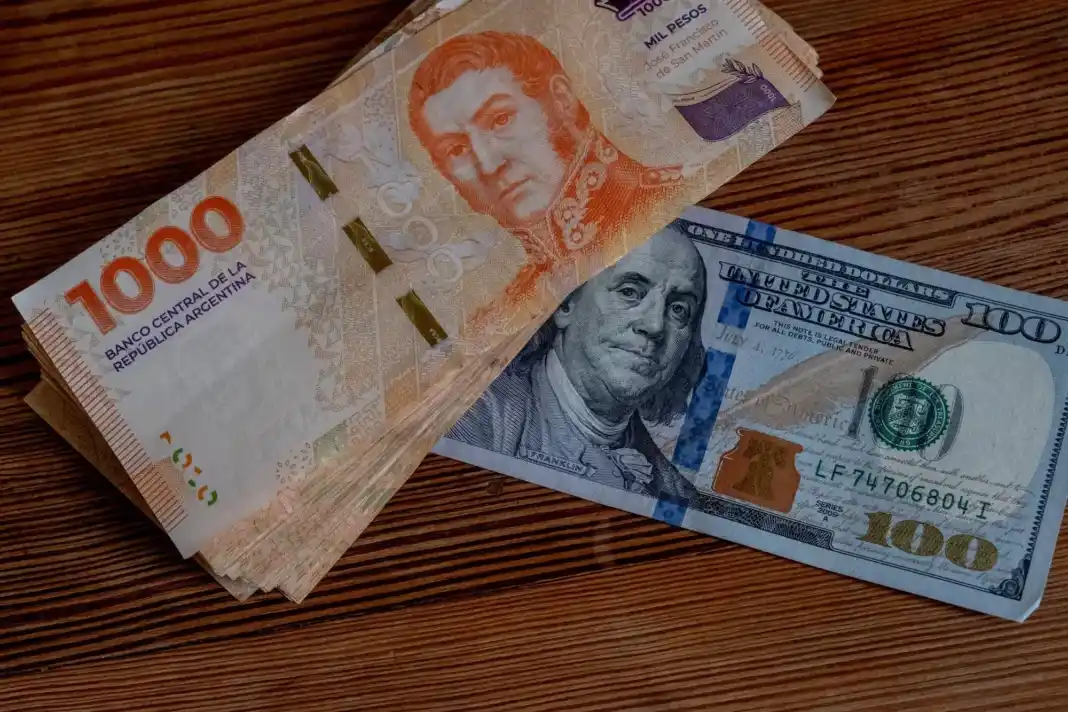The Argentine peso had a remarkable year, strengthening by 44.2% against other currencies in 2024. This surge in value has made President Javier Milei very popular among Argentines, who have seen their purchasing power increase significantly.
Salaries have almost doubled in dollar terms, making life easier for many people. The average salary in Argentina is now around $990, up from around $500 just a year ago. This increase in purchasing power has boosted consumer spending, with many Argentines taking advantage of the strong peso to buy imported goods or travel abroad.
However, some experts are worried that this might not last. They fear that the peso’s strength could lead to a sudden drop in value, causing economic problems. Additionally, Argentina’s exports might become less competitive due to the strong peso.
“The peso’s appreciation is a double-edged sword,” said Ramiro Blázquez, head of research at investment bank BancTrust. “While it’s good for consumers, it’s bad for exporters. If the peso continues to appreciate, or if there is a big external shock, demand for cheap dollars could surge, increasing the risk of devaluation.”
Despite these concerns, President Milei remains committed to his economic policies. He believes that by deregulating industries, cutting taxes, and improving access to credit, Argentina can become more competitive. “We’re not going to devalue the peso,” Milei said in a recent interview. “We’re going to make Argentina competitive through structural reforms. We’re going to reduce taxes, simplify regulations, and improve access to credit.”

Milei, a former private sector economist, has said a fresh devaluation would derail his successful macroeconomic stabilization. He has argued that Argentina can become competitive by deregulating, lowering taxes, and improving access to credit. Meanwhile, the government expects its foreign currency shortage will ease in the coming years as largescale investment in the country’s massive lithium, shale oil, and gas reserves results in increased exports.
Milei’s policies have yielded positive results so far. Inflation, which had been running at over 100% per year, has slowed down significantly. The economy is growing again after several years of recession.
However, some experts worry that Milei’s policies might not be sustainable in the long term. They point out that Argentina’s fiscal deficit is still high and that the country’s debt levels are increasing.
“Argentina’s fiscal situation is still precarious,” said Martín Rapetti, director of Equilibra, an economic think tank in Buenos Aires. “The government needs to reduce its deficit and start paying off its debt. Otherwise, the peso’s strength will be short-lived.”
Despite these concerns, Milei remains popular among Argentines. His approval ratings are high, and many people see him as a breath of fresh air after years of economic stagnation.
“Milei is doing a great job,” said María Rodríguez, a 32-year-old marketing executive from Buenos Aires. “He’s finally doing something to tackle inflation and improve the economy. I’m optimistic about the future.” However, not everyone is optimistic. Some business leaders are worried that the strong peso will hurt their exports.
“The peso’s appreciation is killing us,” said Juan Pérez, a 45-year-old textile exporter from Córdoba. “Our exports are becoming less competitive, and we’re losing market share. The government needs to do something to help us.”
The government is aware of these concerns and is taking steps to help exporters. It has introduced a scheme that allows exporters to convert part of their dollar earnings to pesos in the parallel market, rather than with the central bank.
This scheme has helped to reduce the gap between the official and unofficial exchange rates, which had been a major concern for exporters.
“The gap between the official and unofficial exchange rates is now less than 20%,” said Ezequiel de Freijo, chief economist at agribusiness association Sociedad Rural Argentina. “This is a big improvement from last year, when the gap was over 200%.”
Despite these challenges, Argentina’s economy is expected to continue growing in 2025. The government is forecasting GDP growth of 3.5%, which would be the highest rate in several years.
However, there are risks to this forecast. The incoming US administration’s trade policies could have a major impact on Argentina’s economy.
“If the US imposes tariffs on China, it could lead to a wave of devaluations across emerging markets,” said Robin Brooks, a senior fellow at the Brookings Institution. “The peso is already overvalued, and a big external shock could lead to a sudden devaluation.”
Despite these risks, Milei remains confident that his policies will continue to yield positive results.
“We’re not going to be blown off course by external shocks,” Milei said. “We’re going to continue implementing our policies, and we’re confident that they will lead to sustainable economic growth.” Only time will tell if Milei’s policies will continue to succeed. But for now, the strong peso is a welcome respite for Argentines, who have endured years of economic hardship.

